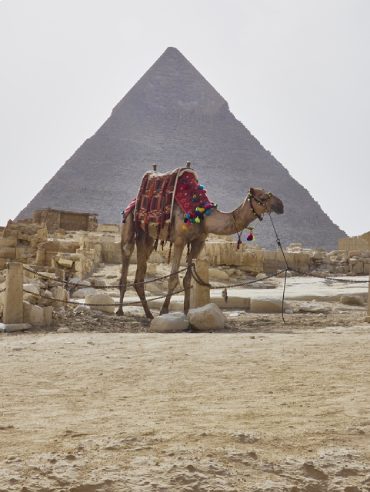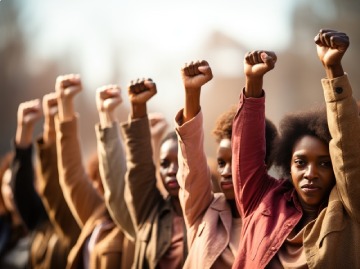Politics, Power, and the Past - Africa’s Journey in Focus
Politics in Africa can be linked to its rich ancient history, from pre-colonization to the post-independence era. As a continent with so much diversity in culture, colonization by the Europeans has left it with a distasteful effect both politically and economically.
Since gaining independence, many African countries have struggled with good governance and nation-building. Amidst these challenges, there has been progress in making Africa a better place and a significant continent in the world. In this article, we will discuss the relationship between African history and politics.
Ancient African Civilization and Early Kingdoms
Africa has been home to humans for thousands of years and possesses some of the world’s earliest civilizations. This era was long before the appearance of the colonial masters. The people of ancient Africa demonstrated innovation, trade, and good politics. Let’s take a look at some of the earliest kingdoms in Africa.

Ancient Egypt
Ancient Egypt flourished along the Nile River for over 3000 years. It’s known for its gracious architecture, like the pyramids of Giza, the Great Sphinx, and the Luxor and Karnak temples, signifying their devotion to religion.
Ancient Egypt had a centralized government controlled by the pharaohs. The Egyptians were known for their wealth from agriculture, the exportation of gold and grains, and their powerful military.
Kingdom of Kush
The Kingdom of Kush dominated the region of Northeast Africa for 1400 years. The way of life of the Kushites mirrored that of the Egyptians in terms of their way of life, burial rituals, and religion. Iron and gold were the two most important resources in the Kingdom of Kush.
Kingdom of Aksum
The kingdom of Aksum, which is present-day Eritrea and northern Ethiopia, was a trading hub. It traded gold and ivory across the Red Sea.
Aksumites were also skilled architects, and they built massive stone obelisks, some of which were over 100 feet high. The kingdom adopted Christianity in the fourth century and formed strong alliances with the Byzantines.
The Mali Empire
The Mali Empire was built when Sundiata Keita led a group of people against the Sosso king and moved into a new state. Under the reign of Sundiata and his successors, the empire grew bigger and became a trading hub in West Africa.
When Europe Came for Africa - The Scramble and Its Lasting Scars
The Scramble for Africa, a popular phrase used to describe when the Europeans came to colonize Africa, started in the late 19th century. Only 10% of Africa was controlled by European countries in the 1870s. But as of 1914, that percentage grew up to 90%.
The Scramble for Africa campaign took place during the Berlin Conference between 1884 and 1885. The reason behind this campaign was driven mostly by economic motives and racial superiority.
Another reason was competition among European powers. Some countries feared that they would not get any spoils if they took no part in the Scramble. The European countries that engaged in this movement included Britain, Portugal, Germany, France, and Belgium.
These colonial masters imposed forced labour on the native African population, taxed them heavily, and rendered the indigenous government powerless. The effect of this colonization was horrific for Africans.
Under the brutal reign of King Leopold II of Belgium in the Congo Free State, half of the population was recorded dead. All resistance movements against the British were violently shut down. The Scramble for Africa was one of the most catastrophic periods in Africa’s history, and its effects continue to show long after independence.
How African Nations Won Their Independence
The quest for liberation gained more strength when the European powers started becoming weak after World War II. African political bodies and grassroots liberation movements were instrumental in the battle for independence. The locals also engaged in protests and strikes and requested self-rule.
Leaders like Kwame Nkrumah, Jomo Kenyatta, and Patrice Lumumba gave their all to make the independence movement fruitful in Ghana, Kenya, and the Democratic Republic of Congo, respectively. Ghana, in 1957, became the first African country to gain independence, which motivated other countries to push for their freedom. By 1990, every country in Africa had already gained independence.
After Independence - Struggles, Setbacks, and Steps Forward
Since independence, African countries have faced challenges regarding new national identities and economic growth. The struggles are a consequence of colonialism. After independence, many African countries fell victim to authoritarian regimes that failed to improve the condition of the masses.
Other challenges seen in Africa today include unemployment and ethnic crises. Despite these challenges, Africa has pressed forward. The goal of the continent in the near future is to have unified governments that favour the needs of the people.
Politics Today - Progress, Protests, and the Push for Unity

The political dynamics in Africa have been dynamic. Some countries, like Ghana, adopted democratization and gave power to the citizens to vote for their leaders from time to time. Others, like Rwanda, use authoritarian rule, where they have a ruler in charge for many years. This contrast explains that despite liberation from the colonial masters, Africa continues to show signs of political instability.
The growing population in Africa is taking advantage of its social media presence for political engagement. An instance is the End SARS movement on social media in Nigeria to end police brutality.
Youths from many other countries have also taken advantage of digital tools to protest against the injustice of the government. However, the African governments have not always proven themselves ready to listen to the people.
There have been high-profile cases of corruption from the grassroots level to the corridors of power in several African nations. Also, bodies like the Economic Community of West African States (ECOWAS) and the African Union (AU) struggle to maintain unity on the continent.
Final Thoughts
The colonial era molded the modern political landscape of Africa. After fighting tooth and nail for freedom, the continent still struggles to give its citizens the life they deserve.
Although Africa is blessed with many natural resources, political instability and corruption remain stumbling blocks that prevent it from reaching the heights it deserves. Only time will tell whether it will surmount these challenges.
